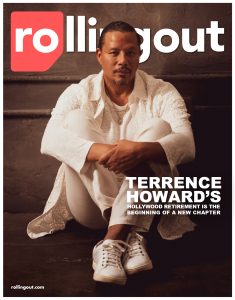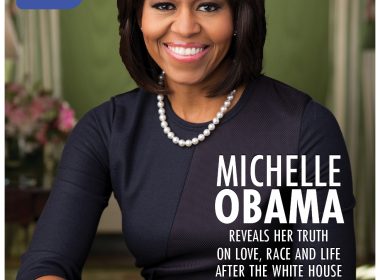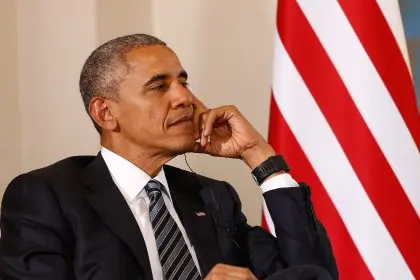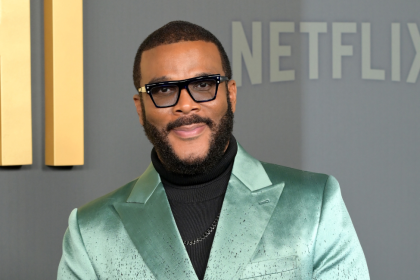
A strange thing occurred shortly before Terrence Howard’s big breakthrough in Hollywood. While taking steps to become one of Tinseltown’s leading men, following the success of Crash, Hustle & Flow and Iron Man, Howard’s rise to superstardom was derailed.
A rift between Howard and Marvel led to him being replaced in Iron Man 2, which negatively impacted his standing within the film industry.
An ugly divorce from his wife of one year, Michelle Ghent, has put him in the unenviable position of being daily fodder for tabloids and gossip sites.
But if there was ever anyone capable of overcoming life’s turbulence, Howard is a man capable of maneuvering through to an impressive comeback.
Howard takes flight as Col. A.J. Bullard in the new action-packed film Red Tails. Inspired by the actual exploits of the Tuskegee Airmen, Hollywood production companies would not support the movie, which prompted George Lucas to spend close to $100 million of his own money to ensure its release.
In a sense, Lucas also went against the grain by enlisting Howard for top billing in Red Tails. The role, in what will likely be a blockbuster hit, could catapult Howard’s career and provide opportunities for him to star in more first-rate films.
While sitting down with Howard at the London Hotel in New York, the passion that he has for his work quickly became evident.
His intensity off camera is similar to the fiery roles that he often portrays on the big screen. When speaking, he makes direct eye contact — never losing focus — and the forcefulness of his voice increases with each statement.
Howard is taking command of his destiny and Red Tails signifies an on time departure.

You are often involved in films that are very character driven. Red Tails is more of an action film. How did this film speak to you?
This film spoke about a generation of heroes. [They were] the gods of aviation, [the] rock stars of the black community from the 1940s. At a time when black people were [not] able to ride in the front of the bus, let alone in the front of the clouds. So that’s what this film represented. These cats were the best of what the world had to offer, and I don’t even think in this day and time there is a pilot that can really match their bravery under the odds and pressure which they had to deal with in life.
Take us back to the moment you received the script. What made this different from anything else you were a part of?
I talked to George Lucas about it in 2006. I got the script in 2009. In reading [it], I realized that this film would be Top Gun and Star Wars with black pilots. I was thrilled to death. … Lucas had no idea in the writing and telling of this story that it would encompass all generations. This has literally reached every person in the world and [everybody] has some correlation to it. Because without the Red Tails, we wouldn’t have won World War II. The Red Tails cleared a way on the beaches of Normandy. Without them, Germany would still occupy most of Europe and would be controlling the economy of the world today. The whole world owes its salvation to the Red Tails.
Along with the historical significance, what has been the most amazing thing about being a part of this film?
I sat and watched this movie with George H. Bush and his wife, Barbara. George refused to pull his eyes away from the film and Barbara walked out of there [in] tears. We also sat down with President Obama at the White House. I’ve done over 50 to 60 films and never have I sat down with the president of the United States to do a special screening in the White House.
George Lucas chose to spend close to $100 million of his own money to release this film because he could not get major studio backing for a black film. Even with a black president, there is still segregation in Hollywood. Why haven’t times changed?
I’m sure all the studios turned down the film because they didn’t understand marketing. I bet they [will] all change their minds come Jan. 20. It’s just a new type of film. I’m sure when they first talked about doing Avatar, there were very few studios who wanted to stand behind making a film about “blue people.” But the people who turned down that film wished that they had held a piece of it. Limitation brings about genius, and the limitations that the Tuskegee Airmen were forced to face made them excel. The limitations that are put upon black filmmakers forces them to excel. The limitations put upon George Lucas made him a multibillionaire. And this film will do the same thing.
Your character in the film goes toe-to-toe with the leaders of the nation and fights to make sure the Tuskegee Airmen have an active role in the war. How did these men change the perception of blacks during that time?
The main thing that my character is trying to do is give blacks at that time the ability to dispel the propaganda that the African American community had been subjected to. For years, it was thought that we were inferior, but they showed that we were superior. The pilots were geniuses. By chance, they qualified to be pilots because they needed black pilots for the Tuskegee program. But most of these Tuskegee Airmen that survived went on to get their doctorate degrees and become the leaders of the world. It’s a great testament for them to say, “I fly planes and I saved the world, but this is what I really do.”
In today’s media, you rarely see strong black men on the screen. How will this movie inspire young black boys to reach beyond the cliché dreams of being an athlete or entertainer?
The best way to teach anyone, is to teach them the truth. But show the practical application of it and the joys of the truth. Young men will see this film and say, “wow, these were 19-year-old men flying planes.” They were supposed to be sitting at home or doing their homework in economics. Mind you, in the 1940s, there were very few black people that went to college. And these men had to be the brightest, because in order to become a part of the Tuskegee Airmen they couldn’t get one thing wrong. The heroics that these men accomplished as a result of their hard work — you can’t get away from that.
In your personal career, you have faced setbacks. How do you maintain your confidence in the face of negativity?
I think people are talking to themselves when they say, “You can’t.” Because only you know what you can or cannot do. Because no one else has an idea what I’m capable of doing. Whenever someone tells you “No,”’ you need to look in the mirror and find God in yourself. Find God’s fingerprint and you won’t need anything more than that. He made the entire universe.
Story by A.R. Shaw
Images byKeith Major for Steed Media Service
Courtesy of Lucasfilm Ltd and TM















